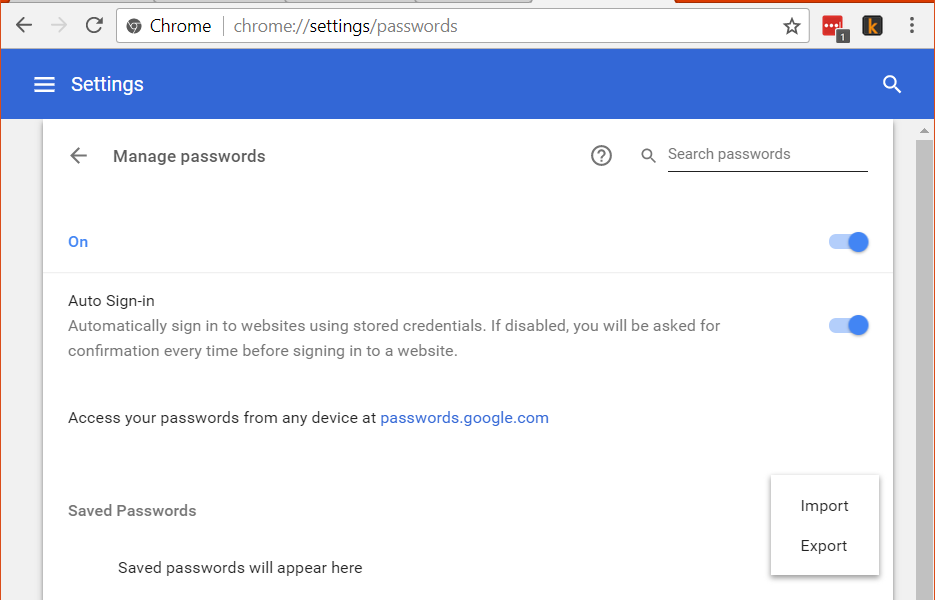I haven’t written any articles about Google Chrome in a looong time, because after upgrading to Windows 10 I’ve been using primarily Microsoft Edge, and frankly there hasn’t been any major update to Chrome I felt the need to talk about. But earlier this month I came across something that might be interesting and useful to many users: according to Google engineer François Beaufort, Chrome will soon add the ability to export saved passwords in a text file. These can be then imported into a password manager. The feature is already available in the Dev channel, so it should roll out to the regular channel in a couple of weeks, as Chrome updates to the next version.
I noticed the feature is also present on the stable channel, but behind a pair of flags: chrome://flags/#PasswordExport and chrome://flags/#PasswordImport. After enabling those two and restarting the browser, search for ‘passwords’ in Chrome Settings, then in the section ‘Saved Passwords’ on the right you should find a three-dot menu with the options to import and export. You should obviously be very careful where you store the generated file, since anyone with access to your computer can open it and see your passwords. Windows Security is helpful here, because the OS prompts you to enter your Windows credentials before downloading this file, but afterwards you’re on your own.

I myself haven’t saved any password in the browser; I store them all in LastPass, which makes it much easier to log in in any browser and on mobile thanks to their extensions and apps. This feature should help more users switch to a stand-alone password manager.
Post a Comment